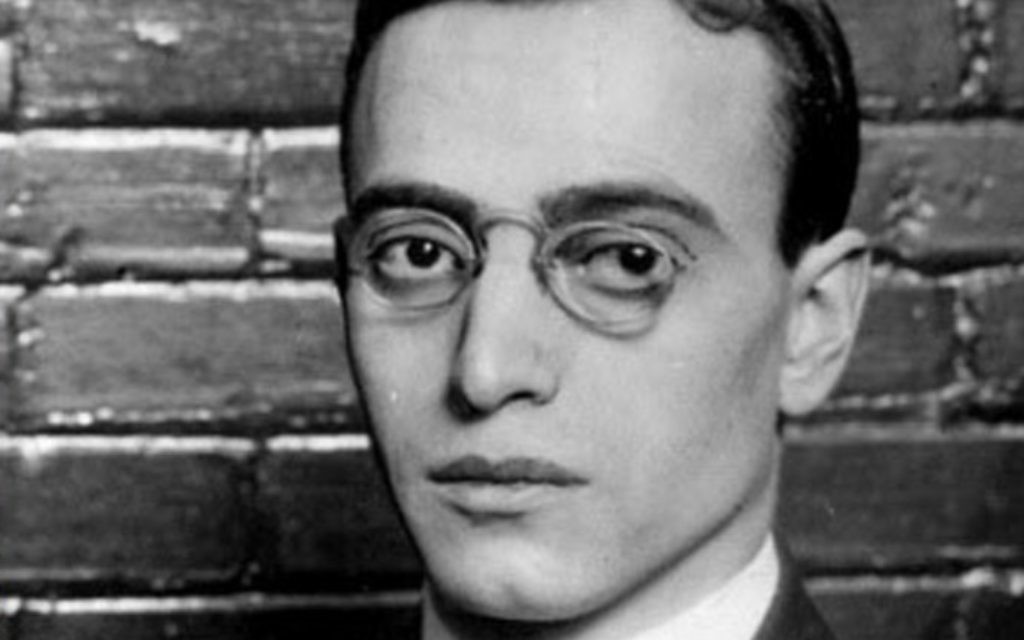Lyncher’s Son Defends Frank’s Hanging
A white-haired man took the microphone Monday night, Sept. 21, and turned a Leo Frank discussion on its head.
“My name is Emmett Burton, and my father and uncle were in the back seat of the car with Leo Frank,” he announced during the question-and-answer period of a panel discussion on media coverage of the Frank case since 1913.
He instantly had the full attention of the more than 100 people crowded into a room at the Kennesaw State University Center, and he quickly defied the expectations of anyone who thought he would echo the Frank-sympathetic tone of the panelists and of the events held in August to mark the centennial of Frank’s lynching.
Get The AJT Newsletter by email and never miss our top stories Free Sign Up
Burton said he had heard the panelists at the KSU Museum of History and Holocaust Education event talk about a mob lynching Frank, but he had looked up the meanings of both words. A mob, he said, is a group of gangsters, and a lynching is a hanging without a trial.
But Frank had a trial, was convicted of the murder of Mary Phagan and was sentenced to death, Burton said. “These gentlemen were carrying out the order of the court.”
He argued that the men who abducted Frank from the Milledgeville prison and hanged him in Marietta were following the law, as the court and the people of Georgia wanted, and that Gov. John Slaton had bucked the law by commuting Frank’s sentence to life in prison.
Burton emphasized that his father, Emmet, and uncle, Luther were law-and-order men. They had fought in World War I, and his father became a deputy sheriff and served as a law officer for 50 years. His uncle was a business owner.
The moderator of the night’s discussion, former Cox Newspapers President Jay Smith, asked Burton whether his father ever talked about the hanging. The silence in Cobb County about the lynching and who carried it out has been cited by “And the Dead Shall Rise” author Steve Oney and others as a reflection of communal shame.
Burton sees the complete silence differently. “To me,” he said, “if you talk about it, you’re bragging about it.”
None of the panelists — former Gov. Roy Barnes, Marietta Daily Journal Editorial Page Editor Joe Kirby, Atlanta Journal-Constitution Editor Kevin Riley and Emory University film professor Matthew Bernstein — called him on it, but Burton was wrong about the definition of a lynching.
It’s a killing, not necessarily a hanging, that is carried out as a punishment without legal sanction. Frank had a trial and was convicted, but once Slaton commuted the sentence, as the law allowed, the Marietta leaders who plotted and carried out Frank’s execution were operating illegally. They were a lynch mob.
Burton’s defense of the lynching sounded like an editorial that The Marietta Daily Journal published in the days after the hanging and that Kirby read earlier in the program: “We regard the hanging of Leo M. Frank as an act of law-abiding men.”
Burton never commented on whether Frank killed Phagan, only that he was convicted of the crime and was properly executed.
Barnes, whose wife learned with the publication of Oney’s book in 2003 that her grandfather was part of the lynch plot, answered Burton by explaining both Slaton’s legal right to commute the sentence and his own belief in Frank’s innocence. The ex-governor said he believes that if the trial judge, Leonard Roan, had not suffered a fatal illness during Frank’s appeals process, the judge would have ordered a retrial because of his doubts about the case.






comments